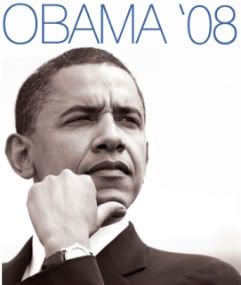Friday, February 20, 2009
Dick Morris Article
By DICK MORRIS
Published on TheHill.com on February 10, 2009
Because of the concentrated efforts of millions of Republicans all over America, Susan Collins (Maine) was reelected to the Senate, surviving a challenge once thought to be serious. She won, in large part, because she was able to drown her Democratic adversary in a sea of campaign spending made possible by donations from Republicans throughout the nation. As a result of their efforts, the GOP preserved its 40th vote in the Senate.
And when Saxby Chambliss was forced into a runoff in the Georgia Senate race, Republicans from all over the United States poured out their hearts and their funds to get him reelected, all to save the 41st vote and be able to filibuster Democrats' big spending proposals.
Now the actions of three people who told their voters that they were Republicans have eliminated any hope that the GOP has for influence during the next two years. By making their own deals with the Obama administration and settling for cosmetic improvements in the so-called stimulus package, Sens. Collins, Olympia Snowe (R-Maine) and Arlen Specter (R-Pa.) have sold out their party, their state and their supporters.
Don't buy their excuse that they shaved more than one hundred billion dollars in spending from the Senate version. By the time the Senate/House conference reconciles the differences between the versions of the legislation passed by the two houses, most of that spending will be back in the law anyway.
Collins, Snowe and Specter had a chance to send a message to Obama that he had to deal with the Republican Party to avert a filibuster. They could have made it clear that genuine bipartisan cooperation was necessary to pass legislation. These three senators, pledged to cut taxes and oppose massive growth in federal spending, could have demanded a 2-to-1 ratio for tax cuts over spending, rather than the reverse, as Obama is succeeding in getting.
Instead, the three wimped out and caved in for peanuts from Obama. In doing so, they completely stripped their party of any leverage. There was no point in having gotten 41 votes if the three weakest links could sell the party out.
This stimulus package will:
• Hurt economic recovery by elbowing aside private borrowers and consumers as the government goes to the front of the line to borrow adequate funds to cover its deficit.
• Invite massive inflation in the future as consumers and businesspeople sit on most of the money until times improve. Then, when confidence begins to return -- no thanks to the stimulus package -- they will deluge the economy with money, triggering massive inflation.
• Expand government and spend borrowed money on projects that may have some long-term merit but are scarcely our top priority right now.
Republicans in Maine and Pennsylvania need to learn their lesson and assure that these three senators face a primary. Real conservatives, who oppose larger government, must stand up to these three phony Republicans.
They'll get their chance. Specter is up for reelection in 2010. He should have been defeated in 2006 when a real conservative, Pat Toomey, opposed him in a primary and only narrowly lost. Better luck next time.
The very concept of checks and balances evaporated last week on Capitol Hill when these three senators sold out their colleagues and stripped their conference of its power. Now Obama can buy off the GOP senator by senator without having to make genuine compromises with the other party to pass his agenda.
In 1993, Clinton was not able to buy Republicans retail. Only Vermont's Jim Jeffords, who soon became a Democrat, gave way and dealt independently with the president. Now, with their backs to the wall, facing a spending package that will consign America to rampant inflation, massive debt and continued recession, these three senators have gone back on their most fundamental pledge to their constituents -- to act in the public good.
Go to DickMorris.com
Thursday, February 19, 2009
OBAMAthon!!
Tuesday, February 17, 2009

Obama's Permanent Campaign [Amy Holmes]
Anyone else notice something peculiar about today's bill signing?
Typically, a bill signing takes place in the East Room, or in the Rose Garden if the weather is nice. The president is flanked by the bill's co-sponsors who get to share in the glory and bask in the reporters' flash bulbs and television cameras.
Not this time. There was no Congressional procession to the White House. No press conference on the driveway. Nancy Pelosi, Harry Reid, Chuck Schumer, and Steny Hoyer did not get to stand beaming with pride as Obama signed into law billions upon billions of dollars of democratic spending. Nope. President Obama stood at a lecturn a thousand miles away from Pennsylvania Avenue, and sopped up the applause and credit alone.
The president may have been trying to de-politicize a most partisan bill, and infuse it with his goodwill and high approvals. But the absence of his Congressional allies at the signing of the biggest spending bill in American, make that world, history was notable. He may have said today that the bailout was for all Americans. But the optics of the event said something different: that the credit was his alone.
From my brilliant attorney friend Mike B:
This is dangerous.

Check out the photo. Obama is signing the Theft Act while Biden looks on. I don't ever want Biden and Obama in the same room. If something happens to both of them, Pelosi becomes President. Bush had the good sense to never appear in public with his VP, to keep that football coach guy from Illinois from becoming President in the event of an attack. We are stuck with Obama but he should at least make sure that Nancy has no chance of becoming President.
Mike makes an intriguing point - and illuminates something even the National Review writers missed. All of this capping off a week in which (so far) Obama's New Deal, collectivist policies have been criticized by none other than Vladimir Putin, Sweeden, scores of state Governors and...
Barrack Obama! Right out of the Audacity of his own mouth:
"If these conditions do not hold -- if nobody outside Washington is really paying attention to the substance of the bill, if the true costs . . . are buried in phony accounting and understated by a trillion dollars or so -- the majority party can begin every negotiation by asking for 100% of what it wants, go on to concede 10%, and then accuse any member of the minority party who fails to support this 'compromise' of being 'obstructionist.'
"For the minority party in such circumstances, 'bipartisanship' comes to mean getting chronically steamrolled, although individual senators may enjoy certain political rewards by consistently going along with the majority and hence gaining a reputation for being 'moderate' or 'centrist.'"
- from "The Audacity of Hope"

Congrats Democrats!! Well done. My daughter's quality of life thanks you very, very much.
conservOpunk
(the only ones speaking truth to power nowadays are from the Right).
http://online.wsj.com/article/SB123317069332125243.html
http://www.thelocal.se/17668/20090218/
Tuesday, February 17, 2009
We are serfs
Wednesday, February 11, 2009
from AYN RAND CENTER
Obama’s Backward Economics
January 9, 2009
Washington, D.C.--“Barack Obama claims that Americans can only stave off economic disaster by trillions in government spending--which means trillions of dollars taxed or borrowed to finance government make-work programs,” said Yaron Brook, executive director of the Ayn Rand Center for Individual Rights.
“Obama-nomics couldn’t be more wrong.
“Prosperity requires that the government drastically cut government spending. That way, as much real capital as possible will remain in private hands, and be put to productive use by entrepreneurs to create valuable goods and services to sell at home and abroad. By taxing and inflating our wealth away, Obama will simply be creating more of the crushing debt that brought about the current crisis.”
“You don’t put out a fire with more gasoline. And you don’t end a recession by destroying capital.”
### ### ###
Dr. Yaron Brook is available for interviews. To interview Dr. Brook or book him for your show, please e-mail media@aynrandcenter.org
ARTICLE: Tony Blankley
Daschle-Obama Health Care Possibilities
By Tony BlankleyAs President-elect Obama's apparent choice for health and human services secretary and as White House health care czar, it is a fair guess that Tom Daschle's view on health care legislation may be decisive.
So it is worth reading his book "Critical: What We Can Do About the Health-Care Crisis," in which the gracious former Senate leader lays out without equivocation both the policy he recommends and the tactics for how to pass it.
He proposes setting up a board to establish standards for health care delivery in the United States that would be modeled on how the Federal Reserve Board and Securities and Exchange Commission oversee banks and corporations. Technically, it only would oversee the public health systems (Medicare, Medicaid, Veterans Health Administration, etc.), which provide about 32 percent of health care nationwide.
On Page 179, he writes, "The Federal Health Board wouldn't be a regulatory agency, but its recommendations would have teeth because all federal health programs would have to abide by them." But here is the kicker: Although his board technically would have no say on the 68 percent of health care that is provided through the private sector, at the bottom of Page 179, Daschle modestly adds: "Congress could opt to go further with the Board's recommendations. It could, for example, link the tax exclusion for health insurance to insurance that complies with the Board's recommendation."
Those last 19 words would spell the end of independent private-sector health care in America. Obviously, no health insurance would be sold if it were denied the tax deduction. Thus, every policy, every standard decided by this board would be the law of the land for every drug company, every hospital, every doctor and every health insurance company.
Indeed, 20 pages later, in the section in which he identifies "losers" under his plan, Daschle is admirably candid. Among the explicit "losers," he includes: "Doctors and patients might resent any encroachment on their ability to choose certain treatments, even if they are expensive or ineffectual compared to alternatives. Some insurers might object to new rules that restrict their coverage decisions. And the health-care industry would have to reconsider its business plan (emphasis added)." That is to say, they can stay in business and deliver their services, but only as the government bureaucrats say they may. They no longer would be genuinely independent.
One of the things that Daschle says will have to change is the "technology arms race" he claims hospitals are engaging in "to attract aging baby boomers with the latest diagnostic imaging machines." Imagine that, offering customers the latest technology, which, as Daschle admits on Page 125, "help(s) doctors estimate the spread of cancer or the extent of cardiac disease without surgery."
Of course, for Daschle, the problem with such high-tech diagnostics is that it leads to treatment. On pages 123-124, he cites a study approvingly for the proposition that there are too many angiograms being performed. By too many, he specifically cites a study of 828 angioplasties in which only a third were likely to benefit the patients. Another half might or might not, and 14 percent were not likely. Now I might conclude that if 85 percent of the patients receiving the treatment might benefit (the one-third who definitely would and the 50 percent who might) and if I were one of them, I might want the procedure. But for Daschle, that would be a waste of money, and "the imaging test that shows narrowing of the arteries was to blame (for the excessive treatment)."
What followed is my favorite line in the book: "When the test revealed a narrowing of the artery, however slight, cardiologists couldn't resist doing something about it." Imagine a doctor trying to cure his patient.
Cardiologists may have thought they were carrying out their responsibilities. But under the Daschle(/Obama?) plan, political hacks appointed to the Health board will decide whether your cardiologist is allowed to image your arteries and, if they find blockage, try to treat it successfully.
But that is not all he doesn't like about private-sector health care. On Page 174, he points out the dangers of letting drug companies advertise their products to the public: The public may want the drugs even if some Washington bureaucrat likes another drug instead.
He believes that Americans are not entitled to just any care that might do some good. Yep, Page 122: "Many patients with insurance want any care that might do some good, and plenty of doctors will oblige them."
Recognizing that some of these ideas may not be vastly popular, he recommends two basic legislative strategies. First, seek to pass the legislation early in the first year of the president's first term, when he is most popular and is least likely to be resisted. That is a valid analysis.
The other strategy, which is very smart, is to leave the nasty details out of the bill. He says that was one of Clinton's mistakes in 1993. Clinton put too many details in the bill, thus alerting those who disagreed to mount an opposition (pages 108-109). Daschle recommends passing a vague bill and then "a Federal Health Board should be charged with establishing the system's framework and filling in most of the details. This independent board would be insulated from political pressure."
By "political pressure," he means the democratic process of electing fellow citizens to Congress who then pass legislation about which the public is informed before final passage -- and about which they may wish to petition their government for redress of grievances. Apparently, we can end petty bickering and partisanship by not letting anyone know what the new laws will contain.
Copyright 2008, Creators Syndicate Inc.
Monday, February 9, 2009
MILTON!
This is truly remarkable. Why can't today's intellectuals comment so directly to the media talking heads? Friedman is brilliant!!
C Punk
Shelby Steele - Black Conservative
by JOHN MCWHORTER
The most important book a modern person should read about the black experience is neither Malcolm X’s autobiography nor any other memoir, history, or novel that casts racism—subtle or not—as the essence of the black experience. Shelby Steele’s The Content of Our Character remains, almost 20 years after its publication, a crucial analysis of what ails today’s debate over race.
A constructive concern with black uplift has bifurcated into, for whites, an emotional commitment simply not to seem racist, and for blacks, a victim-based self-conception based less on modern experience than a quest for spiritual security. The result is a coded and grievously insincere “dance” we all do, which discourages true achievement by blacks and nurtures quiet racism of a new kind among whites. The situation Steele nails so accurately and eloquently is an understandable by-product of how the civil-rights revolution played out. My sense is that in 2009, the rituals Steele describes have somewhat less influence than they did when he wrote—but we will never be truly post-racial in the sense Obama’s election has us thinking about until what Steele describes is utterly antique. Legions of black people think like Steele in their hearts and suppose that they are alone, but in 50 years his book will seem the quintessence of common sense. Anyone interested in getting on the bandwagon ahead of the curve should read The Content of Our Character—twice, even, and pass it along to a friend.
— John McWhorter is a senior fellow at the Manhattan Institute and the author of All About the Beat: Why Hip Hop Can’t Save Black America.







